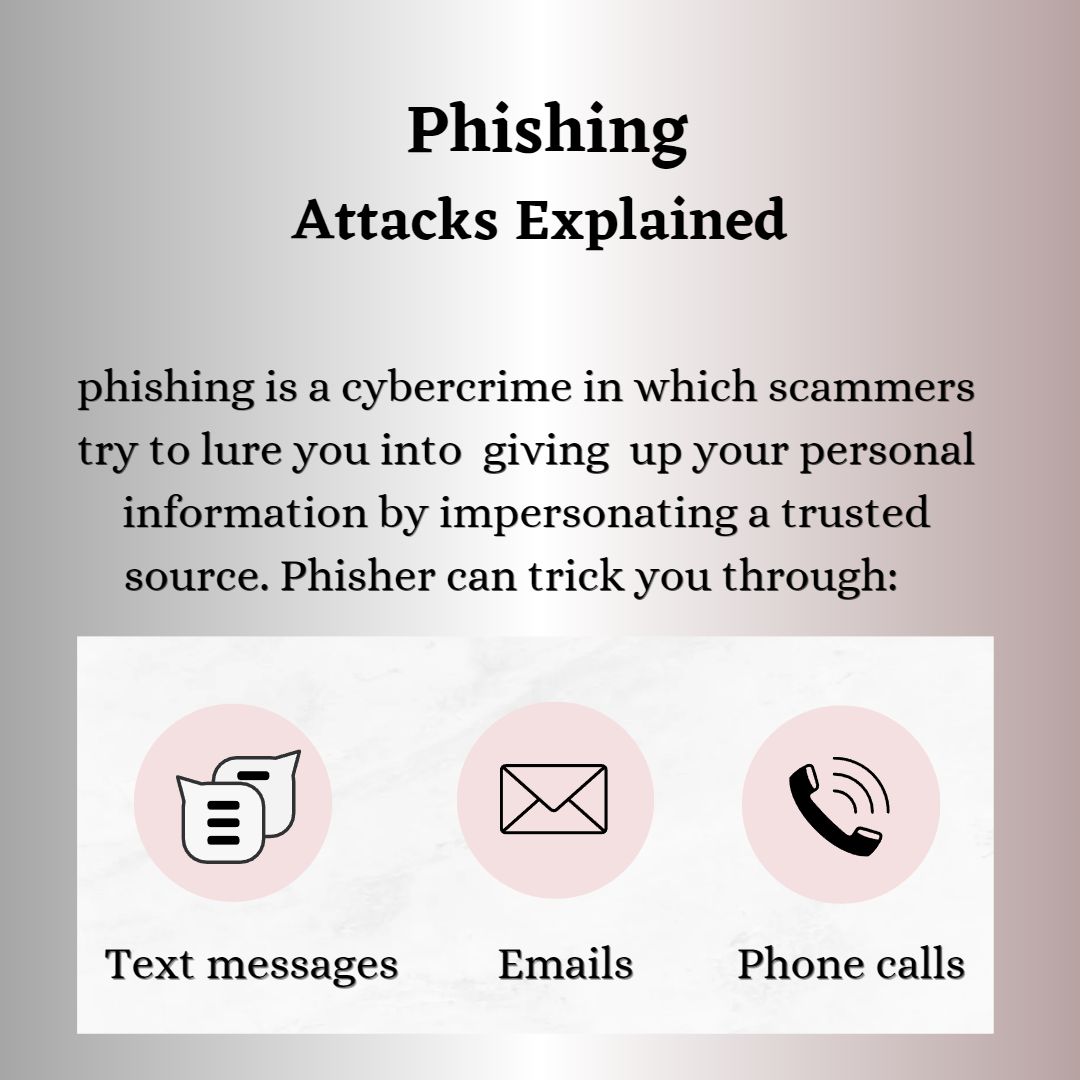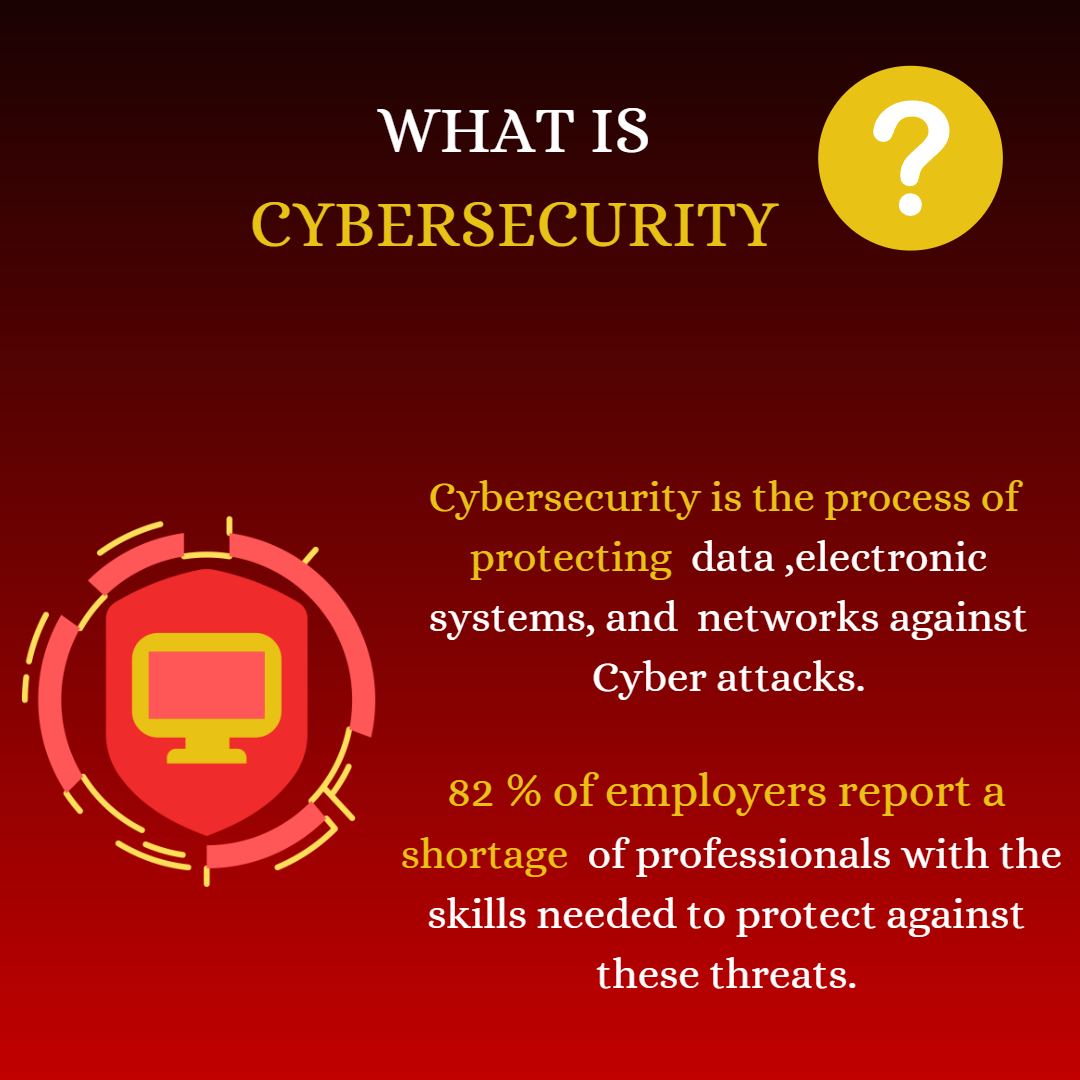Lottery scams
A lottery scam is a type of fraud in which victims are falsely informed that they have won a prize or jackpot, even though they never entered a lottery. The scammer then demands upfront payments or personal information, supposedly to claim the winnings. These scams are typically initiated via phone calls, emails, letters, or text messages. The scammers often pose as legitimate lottery organizations or government bodies to lend credibility to their claim.
A lottery scam is a form of fraud where individuals are tricked into believing they have won a large sum of money or a valuable prize, despite never having participated in any lottery. Scammers typically inform the victims via unsolicited emails, phone calls, letters, or text messages. To claim the “winnings,” the victims are often asked to provide personal information, such as banking details, or make an upfront payment, supposedly to cover processing fees, taxes, or legal expenses. These requests are the first signs of deception, as no legitimate lottery requires winners to pay to claim their prize.
The methods used in lottery scams are increasingly sophisticated, with fraudsters often posing as official representatives of well-known lottery organizations, government bodies, or even international sweepstakes. They create a false sense of legitimacy by using official logos, professional language, and fake websites to trick their targets. In some cases, scammers may also use social engineering techniques, exploiting the excitement and emotions of the victims, who believe they have won life-changing amounts of money.
How Do Lottery Scams Work?
Lottery scams follow a manipulative and deceitful process designed to exploit individuals’ hopes of winning a large sum of money. Here’s a breakdown of how these scams typically work:
Initial Contact: The scam begins when the victim receives an unsolicited message via email, phone call, text message, or letter. This message claims that they have won a significant prize or jackpot, even though the recipient never entered a lottery. Scammers may even mention reputable lottery organizations to appear legitimate.
Use of Authority: To make the scam seem credible, fraudsters often impersonate officials from well-known lottery organizations, financial institutions, or government agencies. They may use logos, fake websites, or professional-sounding names to make their claims seem official. Many victims are swayed by this sense of authority, especially when scammers insist the communication is urgent.
Request for Upfront Payment: Once the victim believes they have won, scammers introduce the idea of processing fees, taxes, or legal expenses that need to be paid before the prize can be released. The victim is told that these costs are small in comparison to the large prize awaiting them, making it seem like a reasonable trade-off.
Demands for Personal Information: In addition to asking for money, lottery scammers often request sensitive personal information such as bank account details, social security numbers, or copies of ID documents. This data is then used for identity theft or other forms of fraud.
Repetitive Demands: After the initial payment is made, scammers often return with additional demands. They might claim that unexpected legal issues or further taxes have arisen, asking the victim for more money. This cycle can continue for as long as the victim complies with the requests.
Exploiting Emotional Responses: Scammers take advantage of the victim’s excitement, creating a sense of urgency. Victims are often told they must act quickly to claim their prize, which prevents them from taking time to think critically or seek advice. This emotional manipulation is a key tactic in lottery scams.
No Actual Prize: In reality, there is no prize or jackpot. Once the scammers have extracted as much money or information as they can, they disappear, often leaving the victim in financial and emotional distress.
Impact on Victims: Victims not only lose money but also risk identity theft, long-term financial issues, and emotional trauma. Many victims are left feeling ashamed or embarrassed, which makes them reluctant to report the scam.
Organizations like Pankh Cyber Security Consultancy provide critical services that help individuals and businesses protect themselves from cyber threats, including scams like these. Pankh’s expertise in cyber security consulting and risk management services ensures that individuals and corporations are better equipped to identify, avoid, and respond to fraudulent schemes. Their services also include safeguarding personal information and securing communication channels, which are essential in preventing data theft from scammers.
Additionally, Pankh offers comprehensive training programs for employees and individuals on recognizing and dealing with phishing attempts, which are often the first step in scams like lottery fraud. By improving awareness, Pankh empowers people to defend themselves against the ever-evolving tactics of scammers.
In cases where victims have shared personal data or fallen prey to lottery scams, Pankh can assist with damage control, offering guidance on how to secure compromised accounts and prevent further financial loss. With such resources, individuals and organizations can take proactive steps to protect their digital and financial well-being.
By understanding the tactics used in lottery scams and using the services of organizations like Pankh, people can guard themselves against falling victim to these fraudulent schemes and protect their personal and financial information effectively.

Lottery scams can take several forms. One common variant is the international lottery scam, where victims are told they’ve won a lottery from a foreign country. Since most people don’t know the rules of foreign lotteries, scammers exploit this confusion, convincing victims that such a win is possible. Another variation is the fake charity lottery scam, in which fraudsters claim the winnings are tied to a charitable cause, making the victim feel more inclined to cooperate.
Common Forms of Lottery Scams
Lottery scams come in various forms. One common variant is the email scam, where a victim receives an official-looking message claiming they’ve won an international lottery. Another form is the phone lottery scam, where fraudsters call victims, pretending to be lottery officials. Scams can also involve fake social media pages that announce winnings or claim that the victim’s social media account has been selected for a special prize.
Lottery scams come in various forms, each tailored to exploit the unsuspecting victim’s emotions, trust, and lack of awareness. Below are some of the most common variations of these scams, detailing how they operate and target individuals.
- Email Lottery Scams One of the most prevalent forms of lottery scams is through emails. Victims receive unsolicited messages claiming they’ve won a massive prize in a lottery, often from foreign countries or well-known organizations. The emails appear legitimate, with official logos and professional language, making it difficult for the average recipient to identify them as fraudulent. Victims are usually asked to click a link or respond with personal details to claim their winnings. Pankh offers cybersecurity consultancy services that can help individuals and organizations protect their email systems from phishing attacks, preventing such scams from even reaching inboxes.
- Phone Call Lottery Scams Another common tactic involves scammers calling victims directly, informing them they’ve won a lottery. The caller might claim to represent a legitimate lottery company or an international sweepstake. They will ask for personal information and demand immediate payment of taxes or fees to release the prize. These scammers use pressure tactics, urging victims to act quickly. Pankh provides services that help secure personal data from falling into the wrong hands, offering customized solutions to prevent identity theft and other forms of fraud.
- Text Message Lottery Scams Text message scams are growing due to the widespread use of mobile phones. Victims receive a text message stating they’ve won a lottery or prize draw, with instructions to call a number or click a link to claim the prize. These scams often include a sense of urgency, forcing victims to act without thinking. Pankh offers comprehensive mobile security solutions that help individuals secure their devices, detect suspicious links, and prevent unauthorized access to sensitive information.
- Social Media Lottery Scams With the rise of social media platforms, scammers have adapted by creating fake accounts and pages that claim to run lotteries or contests. Victims are often lured into participating by sharing personal details or paying entry fees. Some scammers even pose as friends or followers to gain trust. Pankh provides social media security services that educate users on how to identify fraudulent pages and accounts, helping prevent data leaks and unauthorized access to personal information.
- Fake Website Lottery Scams In some cases, scammers set up entire websites that mimic legitimate lottery organizations. These fake websites look official and credible, often asking victims to enter personal information or make payments. Once the victim submits the requested data, it is harvested for identity theft or financial fraud. Pankh can help organizations secure their websites and provide consumers with the knowledge needed to verify the authenticity of sites they visit. Pankh also assists in preventing and managing phishing attacks through website security services.
- International Lottery Scams International lottery scams involve scammers informing victims that they’ve won a prize in a foreign lottery, even though they never participated. Since victims may be unfamiliar with the rules of foreign lotteries, they are more likely to believe the scam. The scammers demand payment for customs fees, taxes, or legal documents before releasing the winnings. Pankh offers services to secure international financial transactions and communication, ensuring that personal and financial data is kept safe from cybercriminals.
- Sweepstakes Lottery Scams Sweepstakes lottery scams are slightly different from traditional lottery scams. Victims are told they’ve won a prize from a sweepstake they entered but must pay a fee to claim it. Scammers might reference legitimate sweepstakes to seem credible, further convincing victims. Pankh helps protect organizations that run legitimate sweepstakes by offering cybersecurity services that safeguard their systems from hackers and fraudsters. They also educate businesses on how to protect their customers from scams impersonating their brand.
- Fake Charity Lottery Scams In this variation, scammers claim that the lottery is tied to a charitable cause, making the victim feel good about participating or paying fees. Fraudsters appeal to the victim’s goodwill, convincing them to part with their money in the name of charity. Pankh provides cybersecurity solutions for nonprofit organizations, helping them protect donor information and prevent their names from being used in fraudulent schemes. They also work with individuals and companies to identify potential scam risks before they escalate.
By understanding these various forms of lottery scams, individuals and organizations can take proactive steps to protect themselves. Utilizing cybersecurity consultancy services, like those provided by Pankh, can help prevent fraud by securing communication channels, protecting personal information, and educating users on the latest tactics employed by scammers.
Signs of a Lottery Scam
Scammers use various psychological tactics to trick victims. One of the most common is creating a sense of urgency, pushing the victim to act quickly before thinking critically. Another common tactic is invoking authority, where scammers impersonate officials from well-known organizations. Additionally, fraudsters often appeal to the victim’s emotions, making them believe this is a life-changing opportunity they can’t afford to miss. These tactics exploit a victim’s excitement and fear of missing out on a significant sum of money.
Lottery scams can be deceptive and sophisticated, but they often share common warning signs that can help individuals recognize them. Being aware of these signs is the first step toward protecting yourself from falling victim to such schemes.
- Winning Without Entry One of the most obvious signs of a lottery scam is being informed that you’ve won a lottery or prize that you never entered. Legitimate lotteries require participants to buy tickets or enter contests to be eligible for a prize. If you’re contacted out of the blue about winning a lottery that you didn’t even know about, it’s likely a scam. This is a crucial red flag, as scammers often rely on victims’ excitement to obscure this fact.
- Requests for Upfront Payments Legitimate lottery organizations never ask winners to pay fees, taxes, or processing charges before they receive their prize. If you’re asked to send money in advance—whether for taxes, legal fees, or administrative costs—this is a major indication of a scam. Scammers use this tactic to pressure victims into thinking the payment is just a minor step before they receive a big payout. Pankh, a leading cybersecurity consultancy, provides services that help individuals and organizations recognize these kinds of fraudulent schemes and protect themselves from financial fraud.
- Pressure to Act Quickly Scammers often create a false sense of urgency, telling victims that they must act quickly or risk losing their prize. This tactic is used to prevent victims from taking the time to think critically or seek advice from others. They may claim that the prize is time-sensitive or that the opportunity will expire soon. Always take the time to verify the legitimacy of the lottery claim before providing any information or payments. Pankh can help protect your personal and financial information by providing cybersecurity solutions that prevent unauthorized access to sensitive data.
- Requests for Personal Information Another common sign of a lottery scam is when the scammer asks for personal information such as your bank account details, social security number, or even copies of your ID. Legitimate lotteries will never ask for sensitive information to process a prize. Sharing this information can lead to identity theft and long-term financial consequences. Pankh offers cybersecurity consultancy services to help individuals safeguard their personal information and prevent it from falling into the wrong hands.
- Poor Grammar and Spelling in Communications Many lottery scam communications, particularly those sent via email or text, contain poor grammar, awkward phrasing, and misspelled words. While scammers try to make their messages look official, these errors can be a clear sign that something is not right. Legitimate organizations take care to ensure professional, error-free communication. By using Pankh’s cybersecurity services, you can block phishing emails and filter out suspicious communications before they ever reach your inbox.
- Unverifiable Contact Information Scammers often use fake names, phone numbers, and email addresses to make their operations appear legitimate. They may direct you to a website that looks like an official lottery page but is actually a counterfeit created to harvest personal details. Before responding to any lottery notification, verify the authenticity of the organization’s contact information. Pankh offers website verification services to help individuals and businesses confirm the legitimacy of websites, ensuring they don’t fall prey to phishing or spoofing scams.
Victims of lottery scams can suffer severe financial losses, sometimes amounting to thousands of dollars. Besides the financial damage, the emotional toll on victims can be significant. People who fall prey to these scams may feel ashamed or embarrassed, making them hesitant to report the incident. The scammers may also persist, demanding further payments with excuses such as additional taxes, legal hurdles, or other invented fees, pushing victims deeper into financial trouble.

Tactics Used by Scammers
Scammers use various psychological tactics to trick victims. One of the most common is creating a sense of urgency, pushing the victim to act quickly before thinking critically. Another common tactic is invoking authority, where scammers impersonate officials from well-known organizations. Additionally, fraudsters often appeal to the victim’s emotions, making them believe this is a life-changing opportunity they can’t afford to miss. These tactics exploit a victim’s excitement and fear of missing out on a significant sum of money.
Scammers rely heavily on psychological manipulation to deceive their victims, employing tactics designed to cloud judgment and prompt quick action. One of the most effective methods is creating a sense of urgency. Scammers often tell victims they must act immediately to claim their prize, leaving little time for critical thinking. By presenting the situation as time-sensitive, they push victims to make hasty decisions without seeking advice or verifying the legitimacy of the claim. This pressure tactic keeps victims from realizing they are being deceived until it’s too late.
Another common tactic scammers use is invoking authority. They may impersonate officials from well-known lottery organizations, government agencies, or financial institutions. By presenting themselves as representatives of legitimate, trusted entities, scammers lend credibility to their fraudulent claims. Victims are less likely to question requests from “authoritative” figures and may comply with demands for money or personal information, assuming that such entities would not engage in dishonest practices.
In addition to authority, scammers appeal to the victim’s emotions, particularly excitement and greed. They make the situation seem like a once-in-a-lifetime opportunity—a massive prize or life-changing sum of money that could solve financial worries. This emotional manipulation makes victims feel they can’t afford to miss out, leading them to overlook warning signs. By exploiting the dream of instant wealth, scammers play on basic human desires and cloud rational decision-making.
Scammers also employ social proof to reinforce their claims. They may mention that other winners have already successfully claimed their prizes or provide fake testimonials from previous victims posing as satisfied winners. This tactic makes the scam appear more legitimate and encourages victims to follow suit. The illusion of a shared experience or the success of others is a powerful motivator, making victims more likely to fall for the trap.
Finally, many scammers utilize professionalism and fake legitimacy in their communications. They use official-looking logos, well-structured websites, and formal language to mimic legitimate organizations. These fake materials are designed to build trust and lower the victim’s defenses. The high level of detail in their frauds, combined with the aforementioned psychological tactics, creates a convincing façade that’s hard to question, especially for individuals who are not familiar with the inner workings of lotteries.
Together, these tactics form a powerful strategy that leaves victims vulnerable. Scammers are highly skilled in manipulating psychological triggers, and without the right knowledge or security measures in place, even cautious individuals can fall prey to their schemes.
Impact of Lottery Scams on Victims
Lottery scams can have devastating effects on victims. Financial loss is the most immediate impact, with some victims losing thousands of dollars. However, the emotional toll can be equally significant. Victims may feel embarrassed or ashamed, which can prevent them from reporting the crime. Moreover, the sharing of personal information can lead to long-term issues such as identity theft. In some cases, victims suffer from depression or anxiety as a result of their financial losses and emotional distress.
Lottery scams can have severe and long-lasting impacts on victims, both financially and emotionally. The immediate financial loss is often the most evident consequence. Victims may be tricked into sending thousands of dollars to cover so-called fees, taxes, or processing charges, believing it is a small price to pay for a much larger reward. However, the promised prize never materializes, leaving victims devastated and sometimes in significant financial distress, with no way to recover the lost money.
Beyond financial losses, the emotional toll of lottery scams can be equally damaging. Many victims feel an intense sense of embarrassment or shame after realizing they have been scammed. This emotional burden can prevent them from reporting the crime, as they fear judgment from others or believe that nothing can be done to rectify the situation. This sense of isolation can worsen the emotional impact, leaving victims feeling powerless and alone.
The consequences of sharing personal information during a lottery scam can lead to more far-reaching problems, including identity theft. Once scammers obtain sensitive information such as bank account details, social security numbers, or copies of IDs, they can use this data to commit further fraud. Victims may not realize the extent of the damage until months or even years later when they begin facing issues like unauthorized credit card charges, new accounts being opened in their names, or damage to their credit score.
For some victims, the psychological effects of being scammed can lead to long-term emotional distress, including depression, anxiety, or feelings of deep betrayal. The realization that they were manipulated, often over an extended period, can lead to a loss of trust in others and heightened anxiety over financial security. These emotional scars may linger, affecting victims’ overall well-being and mental health.
In more extreme cases, victims may face ongoing harassment from the scammers. After successfully scamming an individual, fraudsters may return with further demands, claiming additional fees or taxes are needed to release the prize. This continuous exploitation can lead to further financial losses, deeper emotional trauma, and a sense of being trapped in an endless cycle of victimization.
Legal Consequences for Scammers
To combat carding, various strategies are employed by financial institutions, businesses, and consumers. Banks and payment processors use fraud detection systems that monitor transactions for unusual patterns, such as purchases in distant locations or multiple small transactions in a short time frame. Tokenization and encryption of card data help to protect information from being intercepted during transactions. For businesses, adhering to Payment Card Industry Data Security Standard (PCI DSS) guidelines is crucial for maintaining secure payment environments. Consumers are encouraged to monitor their account statements regularly, use credit cards rather than debit cards for online purchases, and employ multi-factor authentication when available.
Lottery scams are illegal in most jurisdictions, and scammers can face severe penalties if caught. Depending on the scope and severity of the scam, fraudsters may be charged with offenses such as wire fraud, mail fraud, and identity theft. Law enforcement agencies like the FBI, Interpol, and local police often collaborate to catch scammers, especially in large-scale operations. However, tracking down scammers, particularly those operating internationally, can be challenging, as they often operate anonymously or from countries with limited legal cooperation.
Lottery scams are illegal in most jurisdictions, and perpetrators face severe legal consequences if apprehended. Scammers can be charged with multiple offenses, depending on the nature and scope of the fraud. Common charges include wire fraud, mail fraud, and identity theft, all of which carry heavy penalties such as fines, restitution to victims, and lengthy prison sentences. In cases where scammers have targeted multiple victims or orchestrated large-scale operations, penalties can be even harsher, with charges escalating to organized crime or racketeering in some instances.
Wire fraud is one of the most frequently applied charges in lottery scams, particularly when victims transfer money electronically. Since these transactions often cross state or international borders, wire fraud is a federal crime in many countries, leading to stiff penalties upon conviction. Additionally, mail fraud is a common charge when scammers use traditional mail to send fake lottery notifications, checks, or prize claim forms. These crimes are prosecuted aggressively, as they exploit both postal services and electronic communication systems to defraud individuals.
Scammers who collect personal information during their schemes can also face charges of identity theft. When scammers use this information to open bank accounts, apply for loans, or engage in other fraudulent activities, they commit further crimes that come with significant legal repercussions. Identity theft not only harms individual victims financially but also undermines trust in financial and governmental institutions, prompting law enforcement to take such offenses seriously.
International lottery scams present additional challenges for law enforcement. While agencies like the FBI, Interpol, and local police often work together to catch scammers, tracking down those who operate anonymously or from countries with limited legal cooperation can be difficult. Scammers frequently use fake identities, hide behind digital encryption, and operate from jurisdictions with weak cybercrime laws, making it challenging for law enforcement to trace their activities and bring them to justice.
Despite these challenges, authorities have made progress in dismantling some large-scale operations, especially with the advancement of cybersecurity tools and international cooperation. However, even with the help of technology and global law enforcement efforts, scammers continue to find new ways to evade capture, often moving their operations to less regulated regions. As a result, catching lottery scammers requires persistent and coordinated efforts by law enforcement agencies.
For victims, the pursuit of justice can be a long and difficult process, and while legal action against scammers is essential, recovering lost money can be challenging. Nonetheless, the legal consequences faced by those caught in lottery scams serve as a deterrent, reinforcing that fraud of this nature is not only unethical but also criminal, punishable by strict penalties and imprisonment.
How to Protect Yourself from Lottery Scams
Prevention is the best defense against lottery scams. First, it’s important to remember that legitimate lotteries will never ask for payment upfront to claim a prize. If contacted by someone claiming you’ve won a lottery you didn’t enter, it’s best to ignore the communication. Never share personal information, such as bank details or social security numbers, over the phone or email. Additionally, ensure that your phone, email, and computer have proper security software installed to filter potential scam messages.
Prevention is the most effective defense against lottery scams, and knowing how these scams operate is the first step toward safeguarding yourself. A critical rule to remember is that legitimate lotteries will never ask for upfront payments to claim a prize. Scammers often request fees for taxes, processing, or legal expenses, but this is a clear red flag. If you’re ever asked to pay money in order to receive a prize, it’s almost certainly a scam. Stay vigilant and be cautious of any such demands.
If you’re contacted about winning a lottery that you didn’t enter, the safest response is to ignore the communication entirely. Legitimate lotteries require participants to enter or purchase tickets. Scammers rely on people’s excitement and hope for financial gain, which can cloud judgment. Whether the communication comes via phone, email, or social media, never engage with it. It’s best to delete or block any suspicious messages to prevent further contact.
One of the most important ways to protect yourself is to never share personal information such as bank account numbers, credit card details, or social security numbers over the phone or email. Scammers often ask for this sensitive data to commit identity theft or financial fraud. Protecting your personal details should always be a top priority. If you’re ever uncertain about a request for information, verify its legitimacy before responding.
It’s also crucial to strengthen your digital defenses. Installing reliable security software on your phone, email, and computer can help filter out phishing emails and block fraudulent communications. Many email providers have spam filters designed to catch suspicious messages, but having additional cybersecurity measures in place provides extra protection. Keeping your software up to date ensures that you’re protected against the latest scam tactics.
Another essential tip is to verify the legitimacy of any lottery-related communication you receive. If the lottery organization claims to be from a well-known company or charity, research the contact information independently and confirm its authenticity. Don’t rely on phone numbers or links provided in the original message, as these are often fake. Taking the time to verify the source can save you from falling victim to a scam.
Lastly, it’s important to educate yourself and others about lottery scams. Share what you know with friends and family, particularly those who may be less tech-savvy or more vulnerable to fraud. Staying informed and spreading awareness helps build a community that’s less likely to be deceived by scammers. Prevention through education and digital security can keep you, and others, safe from falling into the trap of lottery scams.
Reporting Lottery Scams
If you’ve been targeted by a lottery scam, reporting the incident is crucial. Most countries have agencies where such fraud can be reported, such as the Federal Trade Commission (FTC) in the U.S. or Action Fraud in the U.K. Reporting helps law enforcement track down scammers and prevents others from falling victim. Victims should also contact their bank if any financial transactions were made, as the bank may be able to reverse payments or protect against further fraud.
If you’ve been targeted by a lottery scam, reporting the incident is crucial. The act of reporting not only aids in your potential recovery but also plays a vital role in helping law enforcement agencies track down and apprehend scammers. Most countries have specific agencies dedicated to handling such fraud cases. In the United States, for example, the Federal Trade Commission (FTC) serves as a primary point of contact for reporting scams, while in the United Kingdom, individuals can report fraud to Action Fraud. By filing a report, you contribute valuable information that can help combat these fraudulent schemes.
Reporting scams can also prevent others from becoming victims. When law enforcement agencies receive numerous reports about a particular scam, they can identify patterns and devise strategies to inform the public and take action against the fraudsters. This collective effort to report incidents helps raise awareness, making it harder for scammers to operate. Additionally, the more information authorities have, the better equipped they are to track down those responsible and shut down their operations.
For victims who have engaged in financial transactions, it’s essential to contact your bank immediately. If you’ve sent money to a scammer, your bank may be able to reverse the payment, particularly if it was made recently. Even if the transaction is not reversible, your bank can take steps to protect your account from further unauthorized access. They may also advise you on additional measures to secure your finances and mitigate any potential damage caused by the scam.
In addition to contacting your bank, victims should consider informing local consumer protection agencies or fraud hotlines. Many countries have dedicated services that offer guidance and support for individuals who have fallen victim to scams. These agencies often provide resources on how to deal with the aftermath of fraud, including identity theft protection and steps for rebuilding one’s financial security.
Moreover, sharing your experience on online platforms or with local news outlets can also raise awareness about specific scams. By discussing your ordeal, you can help others recognize similar tactics and avoid falling prey to fraudulent schemes. It’s important to remember that victims of scams should never feel ashamed; reporting your experience can empower others and foster a supportive community against fraud.
In conclusion, taking action by reporting lottery scams is vital for both personal recovery and broader prevention efforts. Engaging with law enforcement, financial institutions, and consumer protection agencies helps create a united front against scammers. Through awareness and education, we can collectively work towards reducing the impact of these deceptive schemes
















